Future of North Main Street alcohol law still uncertain going into 2020
Photo by Matt Hampton
The St. Charles City Council chambers in City Hall.
December 19, 2019
In its final meeting of 2019 Tuesday night, the St. Charles City Council again postponed voting on a new liquor bill introduced in November.
The proposed law, which was first tabled on Nov. 19, would eliminate a requirement for restaurants on North Main Street to earn no more than half their revenue from alcohol.
This requirement was part of a Bill 12622, a law passed last year which some restaurant owners say is harmful for business.
More than four bars and restaurants have closed down since 2018 on North Main, a popular drinking area one mile from Lindenwood. Tony Bethmann, owner of Tony’s on Main, said if the law is not changed, three to six more establishments may lose their liquor licenses in 2020 because they do not make at least half their revenue from food.
However, Mayor Dan Borgmeyer, who proposed the new bill, told Lindenlink the city will not enforce the requirement until the issues with the new ordinance are resolved.
“They will not be put out of business,” he said.
Borgmeyer, who took office earlier this year, said the City Council is still reviewing elements of the bill and deciding what to do with it, including potentially changing it.
Supporters of the current alcohol law cite decreased crime on Main as evidence of its success, and safety concerns were stated as a justification for its creation last year.
Penny Pitman, who leases and renovates buildings on Main, recounted break-ins and damages to her properties, and said that before the law, there were “unruly crowds, people chasing each other through the streets, a lot of fights,” and overcrowded bars.
According to a November crime analysis report from the St. Charles Police Department, there were 73% more reported incidents in the area around Main in 2018 than in the first 10 months of 2019. The report showed 531 incidents in 2018, compared to only 307 this year. The most common incidents last year were liquor law violations (75), drug/narcotic violations (67), and simple assault (41).

Image from the St. Charles Police Department
But Borgmeyer said the current liquor law is not what’s responsible for curbing crime.
The food sales requirement, he said, is unnecessary because the bars that caused problems, met the quota and were not closed because of the liquor law.
“It’s a moot point,” he said. “The food is not what makes people behave. The food is not what keeps bars under control. It’s police, and it’s cooperation with the city government.”
In 2018, the St. Charles Police Department upped police enforcement to prevent underage drinking and over-intoxicated patrons.
Borgmeyer said he has worked with police and bar owners on the problem, and better lighting on North Main has helped the district’s situation. He said bar owners have changed how they operate, including stopping playing rap music.
Bethmann said “90 percent” of the problems were caused by three irresponsible bars, which have since closed down.
One of those, Undertow, was the site of a wedding party that famously resulted in a fight which left two hospitalized in 2017.
Undertow and Two Twelve closed before the law took effect, and another location, Bobby’s Place, closed in January 2019.
A man was charged with shooting at two men after an argument at Bobby’s Place in May 2018.
Besides these three, a restaurant called the Lost Whiskey took the place of Undertow in 2018 and closed the same year.
R.T. Weiler’s also shut down at the end of September 2019.
Its owner said the law didn’t have to do with the restaurant closing, although Borgmeyer said the restaurant had “more [liquor law violation] points than anyone.”
R.T.’s, Bobby’s Place, and Lost Whiskey have been replaced by other businesses, but there remain a few other closed buildings on North Main, including the former Two Twelve location.
This interactive map shows the bars and restaurants affected by the law, as well as the businesses that have closed (in red). Two establishments (in purple) are exempt from the portion which requires them to sell 50 percent food because they were grandfathered in to the law.
Eric Sohn has been the owner of Quintessential Dining and Nightlife on North Main for 10 years. He said during most of that time, his business had been consistent, but in the past two years, the crowds have been thinning out on Main.
Sohn said the decrease in business is harming his workers, and he has had to cut jobs to stay afloat.
“If our numbers are down[…] There’s a lot of employees who work for me that didn’t make that tip money,” he said. “I’ve got less positions available for cooks and dishwashers. I’ve got less positions available for security.”
Sohn said his business has no problem selling 50 percent food, so the regulation doesn’t hurt him personally.
However, a 2018 proposal that would have banned the sale of alcohol at 11 p.m. on North Main, does.
Though the bill was discarded, it still puts a damper on business: Sohn and Bethmann say business after 11 is down, because customers are confused and think they are required to close.
Another problem is a reputation that Main is dangerous.
“We need a little P.R. work to restore the reputation and tell people, ‘Yeah, it’s safe to come down here. Yeah, there’s no problems down here,” Bethmann said.
The current liquor law, which was passed in September 2018 and took effect in 2019, created the food sales quota, which only applies to North Main, as well as a point system for liquor license owners throughout the city. The system penalizes businesses for 29 infractions such as serving minors or letting guests leave with open drinks.
The bill introduced last month will change the points system and create an appeal board for people to appeal points, rather than appealing to the same commission that issues them, as they currently do.
Bar owners have supported changing the law, and have had regular meetings with Borgmeyer and the police about the issue.
They say the law is unfair because it only applies to North Main, but other establishments are allowed to sell as much alcohol as they want.
“Why wouldn’t you pass liquor laws that apply to everyone in the city?” Bethmann said. “No, we’ve got special laws down here. That’s just bullshit.”
Elizabeth Mohr, owner of Abigail’s Apparel on South Main, said she is not against adjusting the law, but opposes eliminating the 50 percent food requirement.
“This is a Historic District and attracts a lot of out of town visitors, and I think we need to keep that in mind to keep the area as welcoming as possible at all times of day and night,” Mohr said in an email.
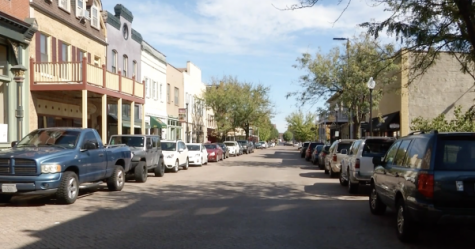
Photo by Jake Baumgartner
While Pitman is not against changing the food requirement, she said she is against a “complicated” new bill and worries about allowing bars which may create a negative environment.
Borgmeyer hopes to bring in new establishments to Main, including International Taphouse, which sells only beer. He said this will bring customers to surrounding restaurants.
There are four available licences for businesses to sell only alcohol on North Main, of which two are taken by existing bars, Borgmeyer said.
The next city council meeting will be Jan. 7, 2020, and six of the nine council members will have to vote for the bill for it to pass.



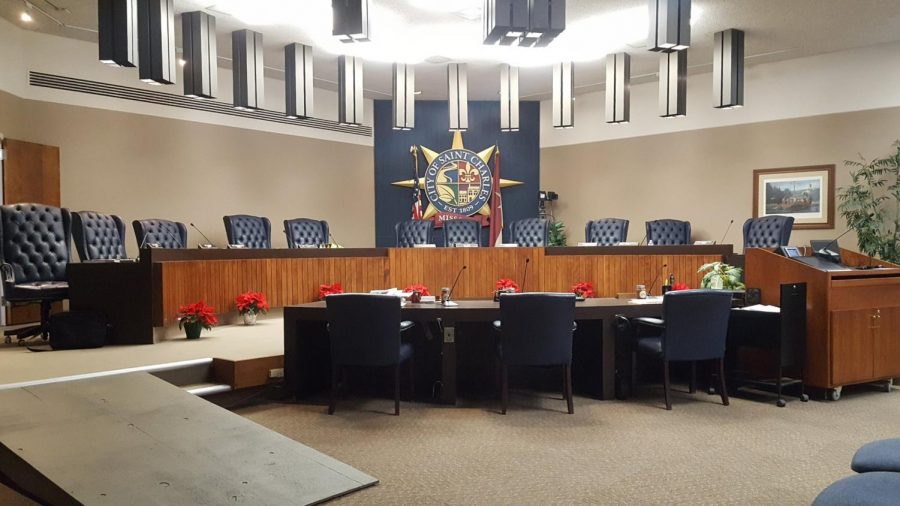




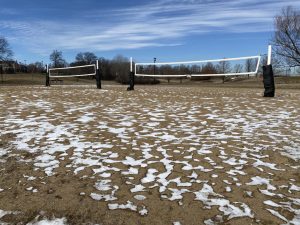
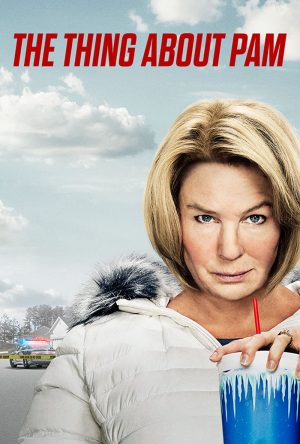
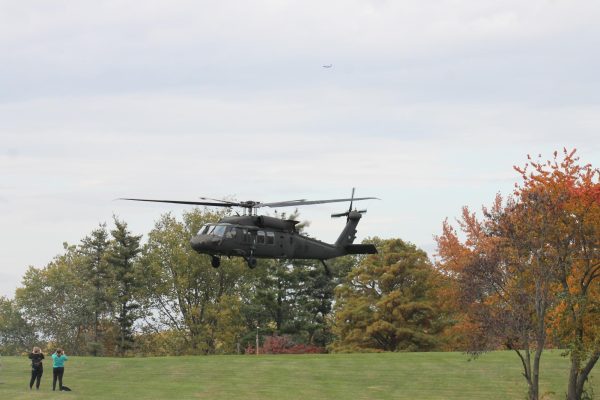
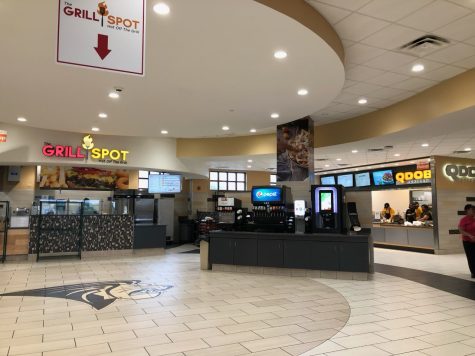
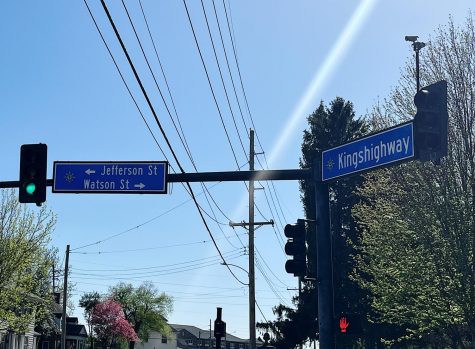
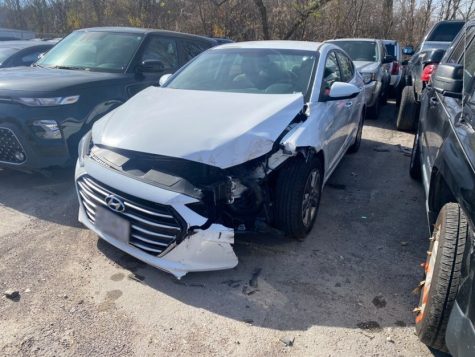
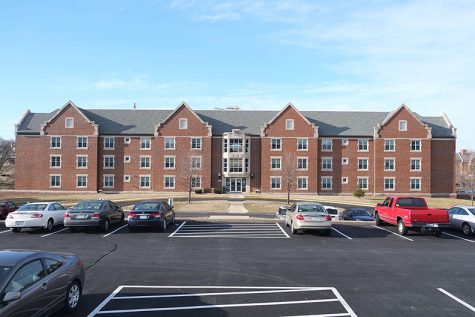
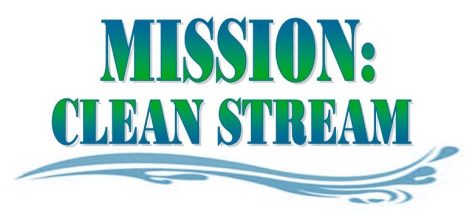
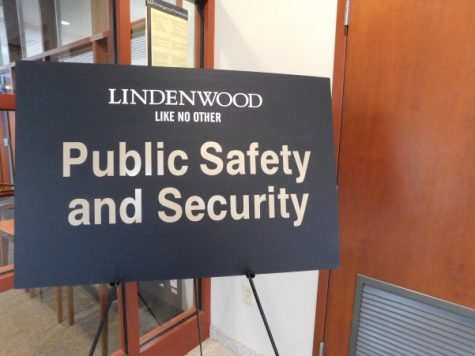

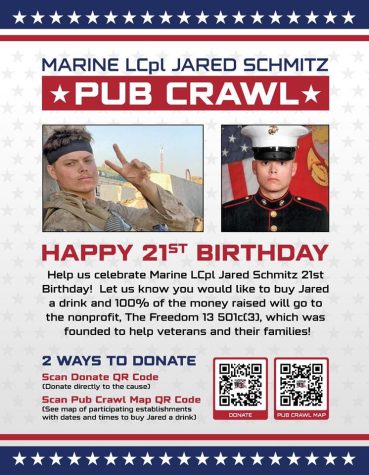
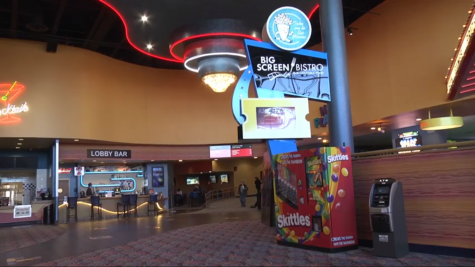
tony bethmann • Dec 21, 2019 at 3:05 pm
Hello. This is tony bethmann from Tony’s on main. Increased dialogue on this issue will lead to the best final outcome. If anyone would like to discuss this issue I am available anytime. Thanx tony. 636.578.4676. [email protected].